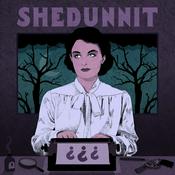160 episodes
- Wes & Erin continue their discussion of Shakespeare’s “Julius Caesar,” and its sustained reflection on how political power is constructed, located, and legitimated.
Upcoming Episodes: “Amadeus,” Susan Sontag’s “On Photography.”
Pre-order Erin’s forthcoming book “Avail” here: http://subtextpodcast.com/avail
For bonus content, become a paid subscriber at Patreon or directly on the Apple Podcasts app. Patreon subscribers also get early access to ad-free regular episodes.
This podcast is part of the Airwave Media podcast network. Visit AirwaveMedia.com to listen and subscribe to other Airwave shows like Good Job, Brain and Big Picture Science.
Email [email protected] to enquire about advertising on the podcast.
Follow: Twitter | Facebook | Website - Wes & Erin continue their discussion of Shakespeare’s “Julius Caesar,” and its sustained reflection on how political power is constructed, located, and legitimated.
Upcoming Episodes: “Amadeus,” Susan Sontag’s “On Photography.”
Pre-order Erin’s forthcoming book “Avail” here: http://subtextpodcast.com/avail
For bonus content, become a paid subscriber at Patreon or directly on the Apple Podcasts app. Patreon subscribers also get early access to ad-free regular episodes.
This podcast is part of the Airwave Media podcast network. Visit AirwaveMedia.com to listen and subscribe to other Airwave shows like Good Job, Brain and Big Picture Science.
Email [email protected] to enquire about advertising on the podcast.
Follow: Twitter | Facebook | Website - Wes & Erin continue their discussion of Shakespeare’s “Julius Caesar,” and its sustained reflection on how political power is constructed, located, and legitimated.
Upcoming Episodes: “Amadeus,” Susan Sontag’s “On Photography.”
Pre-order Erin’s forthcoming book “Avail” here: http://subtextpodcast.com/avail
For bonus content, become a paid subscriber at Patreon or directly on the Apple Podcasts app. Patreon subscribers also get early access to ad-free regular episodes.
This podcast is part of the Airwave Media podcast network. Visit AirwaveMedia.com to listen and subscribe to other Airwave shows like Good Job, Brain and Big Picture Science.
Email [email protected] to enquire about advertising on the podcast.
Follow: Twitter | Facebook | Website - Wes & Erin continue their discussion of Shakespeare’s “Julius Caesar,” and its sustained reflection on how political power is constructed, located, and legitimated.
Upcoming Episodes: “Amadeus,” Susan Sontag.
Pre-order Erin’s forthcoming book “Avail” here: http://subtextpodcast.com/avail
For bonus content, become a paid subscriber at Patreon or directly on the Apple Podcasts app. Patreon subscribers also get early access to ad-free regular episodes.
This podcast is part of the Airwave Media podcast network. Visit AirwaveMedia.com to listen and subscribe to other Airwave shows like Good Job, Brain and Big Picture Science.
Email [email protected] to enquire about advertising on the podcast.
Follow: Twitter | Facebook | Website - Brutus is an honorable man, but Caesar is Caesar: at the beginning of Shakespeare’s play, his name is near the point of becoming synonymous with dictatorial power, and his every wish, as Mark Antony points out, has the substance of a command. For the rebels who oppose him, this identification of political authority with personal will is a perversion of republican institutions, and a form of corruption that justifies any means of putting an end to it, even if that means killing a friend. Yet Brutus’s conception of himself as unflaggingly virtuous is one he in fact shares with Caesar, and perhaps reflects the same authoritarian tendency, in grounding the legitimacy of political action in the character of a particular actor. Then again, it is not clear that democratic institutions will always forestall authoritarian tendencies, rather than enable the masses to sanction absolute power in a charismatic leader. Wes & Erin discuss Shakespeare’s “Julius Caesar,” and its sustained reflection on how political power is constructed, located, and legitimated.
Upcoming Episodes: “Amadeus,” Susan Sontag.
Pre-order Erin’s forthcoming book “Avail” here: http://subtextpodcast.com/avail
For bonus content, become a paid subscriber at Patreon or directly on the Apple Podcasts app. Patreon subscribers also get early access to ad-free regular episodes.
This podcast is part of the Airwave Media podcast network. Visit AirwaveMedia.com to listen and subscribe to other Airwave shows like Good Job, Brain and Big Picture Science.
Email [email protected] to enquire about advertising on the podcast.
Follow: Twitter | Facebook | Website
More Arts podcasts
Trending Arts podcasts
About Subtext: Conversations about Classic Books and Films
Subtext is a book club podcast for readers interested in what the greatest works of the human imagination say about life’s big questions. Each episode, philosopher Wes Alwan and poet Erin O’Luanaigh conduct a close reading of a text or film and co-write an audio essay about it in real time. It’s literary analysis, but in the best sense: we try not overly stuffy and pedantic, but rather focus on unearthing what’s most compelling about great books and movies, and how it is they can touch our lives in such a significant way.
Podcast websiteListen to Subtext: Conversations about Classic Books and Films, The Food Programme and many other podcasts from around the world with the radio.net app

Get the free radio.net app
- Stations and podcasts to bookmark
- Stream via Wi-Fi or Bluetooth
- Supports Carplay & Android Auto
- Many other app features
Get the free radio.net app
- Stations and podcasts to bookmark
- Stream via Wi-Fi or Bluetooth
- Supports Carplay & Android Auto
- Many other app features


Subtext: Conversations about Classic Books and Films
Scan code,
download the app,
start listening.
download the app,
start listening.







































